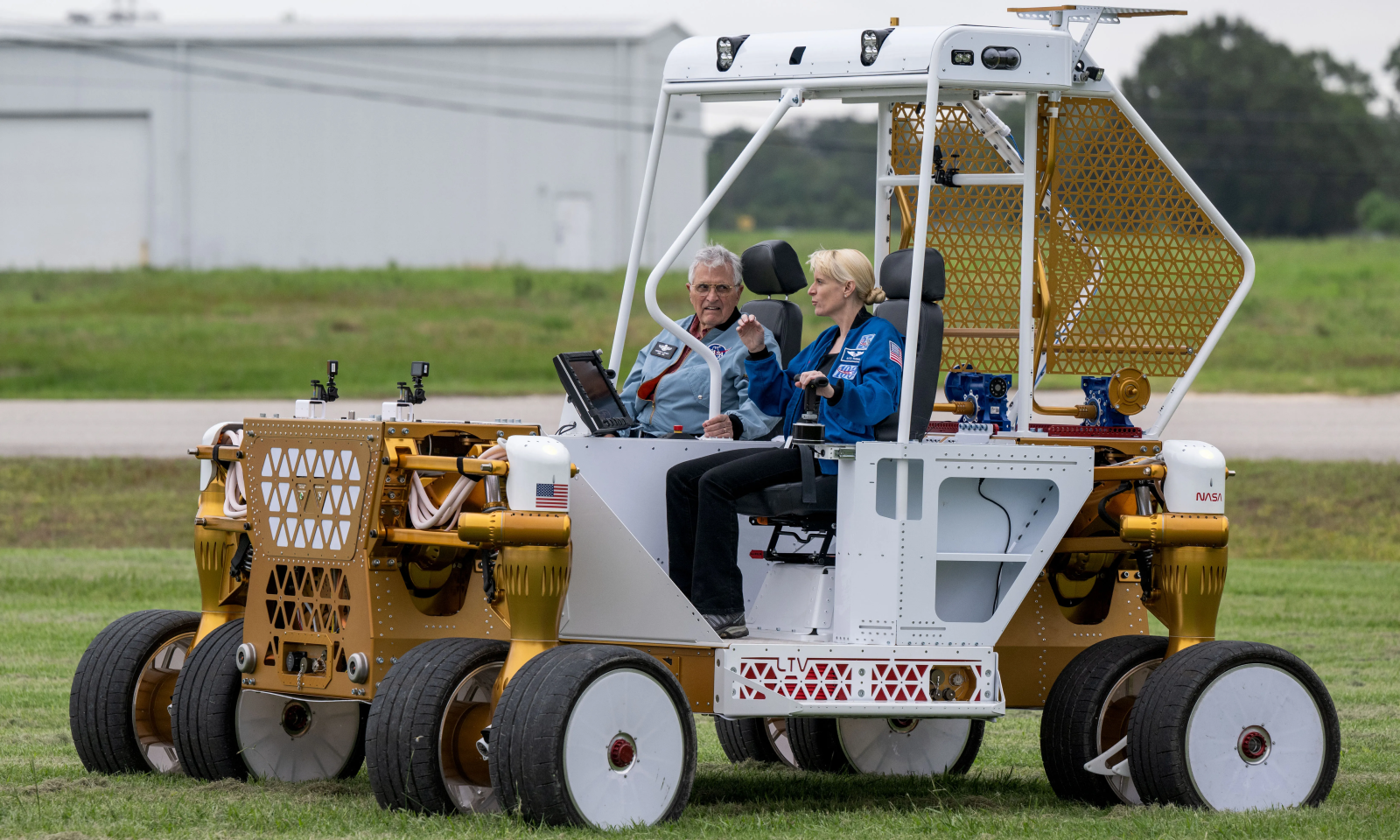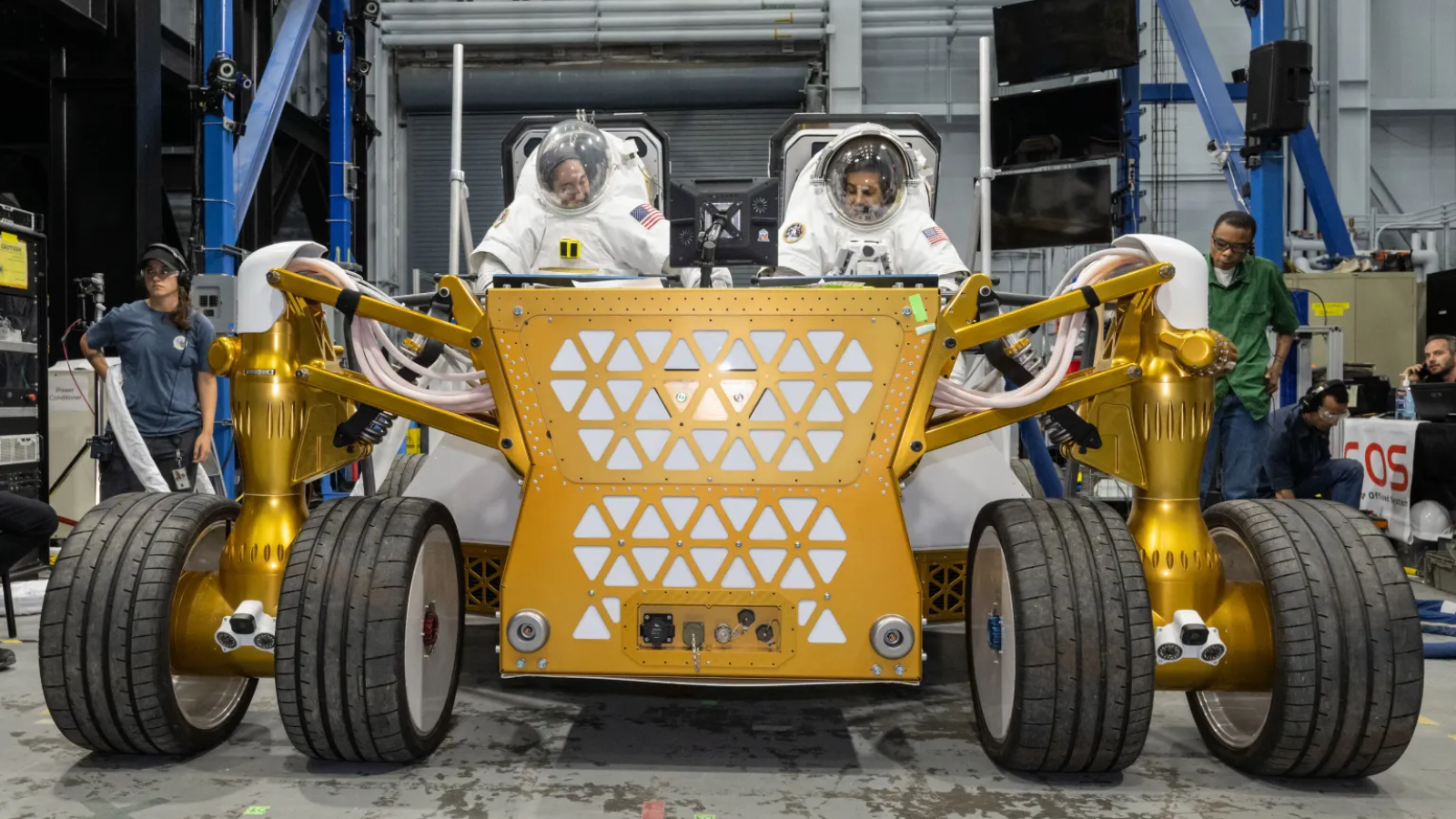NASA's First Lunar Rover Since Apollo Is An Adorable Little Moon Tractor
The new lunar rover is expected to land on the Moon before the end of the decade as part of NASA’s Artemis missions
The last time anyone drove on the Moon was way back in 1972 when the astronauts of Apollo 17 took the Lunar Roving Vehicle for one last spin. Now, NASA is plotting a return to the Moon's surface that will include taking an all-new lunar rover with it, and it's just started testing out prototypes for its latest Moon buggy.
Officially called the Lunar Terrain Vehicle this time around, the new craft could take one of three different forms after NASA recruited three different firms to submit designs. Designs were submitted back in April 2024 from engineering companies Intuitive Machines, Lunar Outpost, and Venturi Astrolab, and now NASA has got a prototype up and running to see how a new Moon buggy could work, reports Futurism.
The first craft that NASA has begun testing won't actually ever make it to the surface of the Moon, but will instead be used to test technologies that could be used in the space-going creation. As such, it's got a bit of an odd look that's a bit like a cross between a small tractor and a golf kart.
While it's not quite as slick as the convertible Moon buggy of the 1970s, the slightly cumbersome look of the new rover is due to the strict requirements of NASA. These days, the agency needs it to have space for two astronauts and their space suits, as well as rugged capabilities that can traverse the lunar landscape with ease. The craft can also be remotely operated and can be summoned as required.

"The Ground Test Unit will help NASA teams on the ground, test and understand all aspects of rover operations on the lunar surface ahead of Artemis missions," said Jeff Somers, engineering lead for the Ground Test Unit, in a statement shared by NASA.
"The GTU allows NASA to be a smart buyer, so we are able to test and evaluate rover operations while we work with the LTVS contractors and their hardware."
Now, the cutesy little craft will be used by the three companies that have submitted proposals for a lunar rover to test out their tech in the coming months. The tech will include semi-autonomous systems and other software and hardware developments that will help NASA and its astronauts explore as much of the Moon's surface ass possible.
Once the design is finalized, it's hoped the craft will be sent to the Moon as part of Artemis III, which will launch "no earlier than September 2026." Before then, NASA will conduct a fly-past of the Moon through Artemis II, which is scheduled for September 2025.
